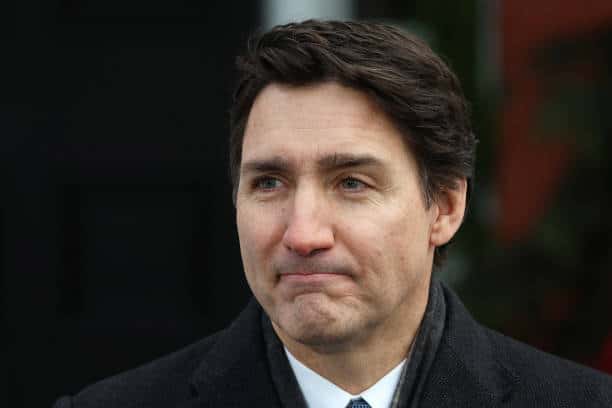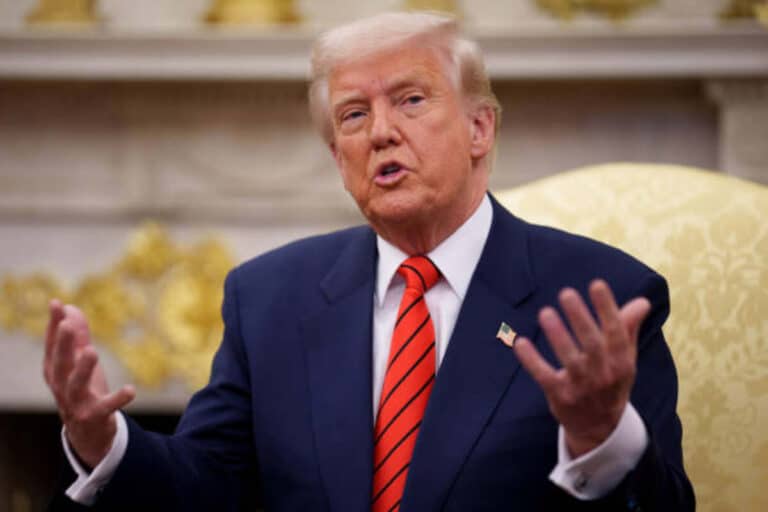

Canadian Prime Minister Justin Trudeau speaks during a news conference. (Photo by Dave Chan / AFP) (Photo by DAVE CHAN/AFP via Getty Images)
(EPICSTORIAN) — The United States has imposed sweeping tariffs on Canadian goods, triggering an immediate response from Canada.
Prime Minister Justin Trudeau announced countermeasures totaling $155 billion, targeting American products in a phased approach over 21 days.
The first wave includes $30 billion worth of goods, with the remaining $125 billion set to follow. Trudeau, addressing the nation, made it clear that Canada would not stand down.
“Canadians are reasonable, but we will not back down from a fight—not when our country is at stake,” he stated.
This phased approach aims to provide Canadian businesses with time to adjust and seek alternative suppliers.
The U.S. tariffs, which took effect recently, have already begun to ripple through global markets. The Dow Jones Industrial Average experienced a significant drop, erasing gains made since the previous election.
Economists express concerns that these tariffs could drive up inflation, disrupt supply chains, and adversely affect both U.S. importers and exporters.
In the corporate sector, companies are reevaluating their production strategies to mitigate the impact of the tariffs.
For instance, Swiss chocolate manufacturer Lindt & Sprüngli announced plans to relocate some of its production from the United States to Europe to bypass Canada’s retaliatory tariffs. This move highlights the broader implications of the trade dispute on multinational operations.
The increasing trade war has also drawn reactions from other U.S. trading partners. Mexican President Claudia Sheinbaum condemned the U.S. tariffs as unjustified and announced plans for reciprocal measures.
China, facing increased tariffs on its goods, has filed a suit with the World Trade Organization and imposed higher tariffs on U.S. agricultural products.
Domestically, the U.S. administration faces a divided response. Some Republican leaders urge patience, while others align with Trump’s aggressive trade stance. Commerce Secretary Howard Lutnick hinted at a potential resolution, though specifics remain unclear.
Trudeau emphasized Canada’s commitment to defending its economic sovereignty, stating that the imposed tariffs would remain until the U.S. retracts its measures.
He assured Canadians of the government’s support during this challenging period, highlighting efforts to protect jobs and businesses.
Why Canada-U.S. tariffs?
The trade conflict escalated after the U.S. president Trump launched trade war against Canada Tuesday, prompting swift retaliation from Canada.
The economic standoff has raised concerns about disruptions in key industries and potential strain on diplomatic relations.
President Donald Trump’s decision to impose tariffs comes amid broader trade tensions affecting global markets.
Also Read: US Manufacturers Report Sharp Drop in Orders as Growth Slows
The impact on businesses and consumers remains uncertain, but analysts warn of potential price increases and economic shifts as both nations brace for further developments.







